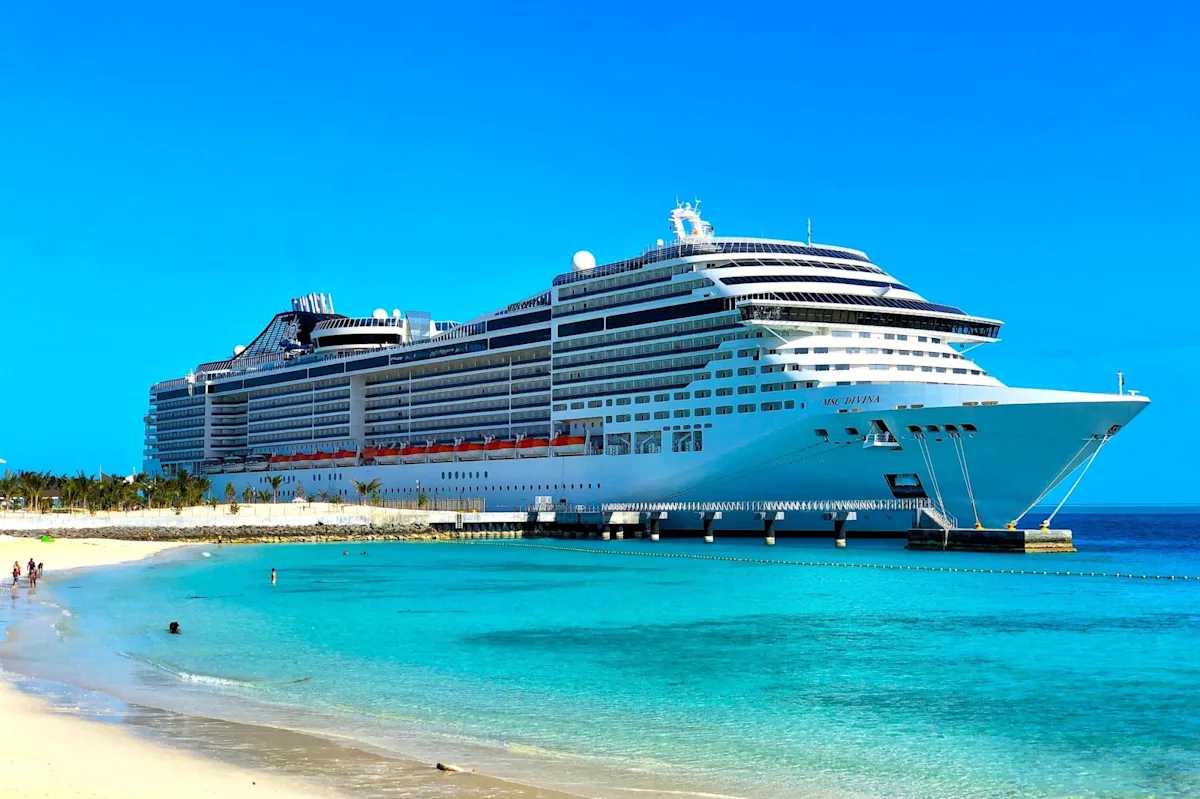
Not all travel agent jobs are the same. Luxury travel planners, corporate travel agents, cruise travel agents… we can go on. All of these roles follow a similar framework — they curate recommendations, plan itineraries and book accommodations — but there are different responsibilities and nuances to each travel agent niche.
Below, we explain what a travel advisor is (at Fora, we call our travel agents travel advisors — and the term can be used interchangeably) before we break down six of the most common travel agent jobs and niches.
First, what exactly does a travel agent (a.k.a. travel advisor) do?
If you’re new to jobs in the travel industry, here’s an overview of what travel agents do.
Travel agents make travel happen. They book accommodations (like hotels, resorts and cruises), provide expert trip recommendations and plan travel itineraries for clients. Think of travel agents like any type of consultant — be it financial, legal, etc.: they help clients get more out of their trips than if they booked through an online travel agency (like Booking.com) or with the hotel directly. Moreover, travel agents leverage industry connections to give their clients exclusive hotel perks, like complimentary breakfasts, room upgrades and resort credits.
Depending on the type of travel agent job, the work can look slightly different. For example, travel advisors whose clientele consist exclusively of large groups will need to navigate more logistics per booking, which will usually be large room blocks or hotel buy-outs. This level of coordination will likely require an additional level of communication between all parties involved (the hotel, the clients, etc.).
What are the duties of a travel agent?

A travel agent’s job is to help their clients maximize their trip experience. This process requires meticulous attention to detail and top-tier communication skills. We won’t lie, though: it requires a lot of hard work. But travel advising is a rewarding career for people who are obsessed with travel (like us). If you join Fora, our will teach you everything you need to know about how to build a successful travel business.
Related Article: Is being a travel agent worth it? (We certainly think so.)
Can you make good money as a travel agent?
Absolutely. But how much travel agents make per booking varies widely from advisor to advisor, regardless of the type of travel agent job they choose. Our guide to how much travel agents make covers this topic in detail. But generally, you get out what you put in. Some Fora travel advisor salaries are in the six-figure range. It takes dedication to reach that point, but it’s very possible. And at Fora, we're all about meeting you where you're at: you can totally start part time-before transitioning to a full-time schedule (if you want to at all).
How do you become a travel agent?
Let's talk travel agent training. You might be surprised to learn that becoming a travel agent is fairly straightforward: the most direct path is to join a travel agent host agency (like Fora) and operate under their licenses. We offer all sorts of perks, from access to dozens of global partnerships to marketing resources and comprehensive trip support.
Our guide to how to become a travel agent outlines the process in greater detail. (And if you’re wondering about timelines, read how long it takes to become a travel agent.)
Comparing different types of travel agent jobs by niche

Below, we break down six of the most common travel agent jobs by niche. However, most travel agents fall into one or more of these categories — in other words, travel agents aren’t limited to a niche, and it’s possible to take on all of these simultaneously. Ultimately, it depends on your bandwidth, experience and target clientele.
For simplicity’s sake, though, we’re approaching each of the following as if they were one distinct path.
Leisure travel agent jobs: planning amazing vacations for clients
The most common travel agent job is planning leisure travel, like an exciting trip to the best places to visit in Spain for first-timers, a stay at one of the coolest hotels in Japan, a New York City foodie tour… the list is almost endless.
As a leisure travel agent, our clients come to you to make their vacation an A+ experience, with VIP hotel perks, exciting itinerary suggestions and tailored assistance.
Related Article: 5 Types of Bookings You Can Make as a Fora Advisor (That Aren’t Hotels!)
Corporate travel agent jobs: planning travel for corporate clients
Corporate travel agent roles are a slightly different from leisure travel agent jobs. While there may be fun aspects to corporate travel — maybe your client wants to impress someone with a great meal or treat their employees to a morale-boosting experience — most corporate travel revolves around business and efficiency.
For corporate clients, travel advisors usually need to find hotels with (or near) meeting places or conventions, organize transportation and coordinate with hotel staff to plan meals and other logistics. It’s inaccurate to say the stakes are higher with corporate travel (a keen attention to detail is required regardless of your travel agent job), but there’s generally less room for error.
Corporate travel agent jobs can be very lucrative, especially at higher levels where entire venues or hotel blocks need to be reserved.
Cruise travel agent jobs: book ocean- & river-borne vacations for clients

Cruise travel agent jobs aren’t that different from leisure travel agent jobs; cruise travel agents choose to focus on selling ocean-bound vacations instead of hotels. Most cruise lines offer a ton of excursion, entertainment and dining options, and you can help your clients sift through the choices they’re most likely to enjoy while offering cool perks. For instance, a Virgin Voyages travel agent can unlock early boarding, onboard credits and more for their clients.
Learning how to become a cruise travel agent doesn’t require that much additional travel agent training. Plus, since most cruises follow a similar formula, once you dip your toe into booking one cruise line, the skills you acquire seamlessly translate to other lines.
4. Luxury travel agent jobs: planning & booking getaways for clients with a taste for the high life
Luxury travel agent jobs involve highly discerning clients. Luxury travel can take many forms, from VIP experiences to reservations at the world’s best hotels (such as Aman hotels). Resort buyouts, specialty cruises, chauffeur services and other high-end experiences are all on the table as well.
With luxury travel, potential earnings can be exponentially larger than ordinary leisure travel — with commissions numbering in the tens of thousands of dollars. But, like corporate travel, the margins for error can also be tight.
If you're keen on starting this travel agent job, we'll teach you everything you need to know about how to become a luxury travel agent.
5. Group travel agent jobs: booking hotel blocks, event venues & more
Group travel agents need to account for more people, more rooms and more logistics. More often than not, group bookings relate to some sort of event: a corporate conference, sports tournament (e.g. booking travel for a youth hockey league), family reunion, destination wedding… the list goes on.
Industry-wide, group travel generally doesn’t pertain to a single family or friend group. Instead, it refers to planning trips for at least eight people, but generally many more.
If that sounds intimidating, we get it. But as a travel advisor with Fora, you’ll learn how to navigate group bookings with ease. Also check out why group bookings are great — (spoiler alert: the commissions for group bookings are among the most rewarding in the business).
(Read our guide to mastering the art of group bookings for more intel.)
6. Other niche travel agent jobs: travel to specific destinations, attractions & more

There’s really no limit to how specialized travel agent jobs can be. Some travel advisors only book travel to specific locations. Some only book trips to theme parks (learn how to become a Disney travel agent). And others focus on planning specific types of getaways, like honeymoons, destination weddings or LGTBQ+ travel.
Deciding on a niche is an excellent way to hone your brand, refine your approach and reach your target client. Instead of being a generalist, you can be an expert on one or two specific types of travel (and always work your way up, if you choose).
Fora Advisor Nadiah Ford explained her own journey after establishing her first niche.
“Our 10-year-old has been to over 40 countries, and our little guy turned two months in New Zealand — so naturally my niche started off as family travel,” Nadiah noted. “But (my business) has quickly expanded to include honeymoons, wellness travel and ski vacations!”
Comparing different types of travel agent jobs by setting
There’s one more way to look at the different types of travel agent jobs. This comparison has more to do with how you conduct your advisor business than the type of travel you're booking.
Remote vs. in-person travel agent jobs
Old-school travel agent jobs were limited to brick-and-mortar establishments, but nowadays you can easily become a travel agent online. Remote travel agent jobs are far more common and are among the best jobs that allow you to travel yourself (since you’re not stuck in an office). In fact, remote travel agent jobs allow you to work anywhere that has an internet connection. You get flexibility, and don’t have to worry about overhead costs for things like office rent.
Independent vs. in-house travel agent jobs

Independent (or freelance) travel agent jobs are a modern approach to the occupation. Independent travel advisors (such as Fora Advisors) set their own rules and hours.
By contrast, travel agents that are employed by an agency (sometimes referred to as in-house travel agents) typically follow bookings quotas and work a set schedule. For some, these requirements are fine, but the ability to work as much or as little as you want as an independent travel advisor (like you would at Fora) offers more freedom.
One more thing: independent travel agents aren’t company employees, but that doesn’t mean they’re on their own. Most work with travel agent host agencies. In exchange for a commission split and, in some cases, a subscription fee, the agency offers the agent (again, a freelancer or independent contractor) resources and access to critical supplier partnerships (see Fora’s travel partners), which allow the agent to incentivize clients with complimentary travel perks.
Related Article: How to Become an Independent Travel Agent
Become a Fora Advisor today and experience the best travel agent job firsthand

We’re biased, but if you want the best travel agent job, become a Fora Advisor. We offer unwavering support, insider intel that gives you an edge, high-tech marketing tools, access to a global network of partnerships (allowing you to provide your clients with A+ perks) and more.
If you still need convincing, check out more travel advisor resources:


